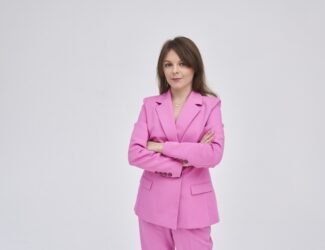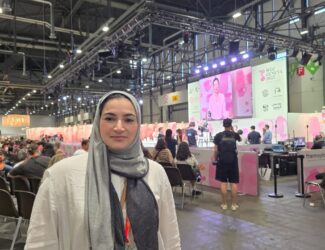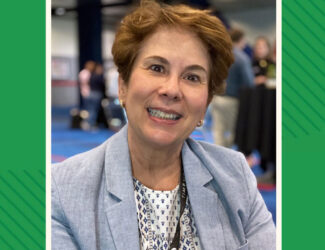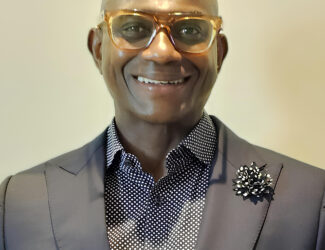
A Journey into the World of Dragoslav Džudović: The Modest Veteran in the Specialty Coffee Realm
Today, we embark on an extraordinary journey into the world of Mr. Dragoslav Džudović, the influential figure characterized by his humility, concealing his deep impact on the specialty coffee world. In this exclusive interview, we explore the realm of a true coffee veteran – from humble beginnings to global fame. Join us to learn about the relationship that brought Dragoslav into the world of specialty coffee and the role serendipity played in his journey. Discover his vital role in the coffee culture revolution in Ajman Emirate, and his relentless pursuit of innovation. Follow along on this exciting journey of the coffee artist who knows no bounds to his passion.
- Who is Dragoslav Džudović, what can you say about yourself?
I don’t like to talk about myself. I’m shy and giving my best not to show off, humble.Maybe I’m wrong in how I see myself, what do you think? How do others see me? How do you see me?
Well, I think you are modest in a nice and beautiful way, which always makes you a welcome person, and someone with a heard and appreciated opinion.
- Can you share a bit about your journey into the specialty coffee industry and what sparked your interest in it?
Huh, I’ll try to make it short. My coffee journey started in 2012 while working for famous Serbian bakery chain Hleb&Kifle, at that time I was slowly getting into specialty coffee. Fast forward to 2014, while still working for that bakery, I happened to meet with Snoopy and Krle who were part of the Java Coffee crew and Marko from CoffeeDesk at a coffee festival later that year. This is how my journey to the world of specialty coffee began, by networking with coffee people.
Shortly after, I signed up with Java Academy to partake in a coffee course, and I have not looked back ever since. This paved the way for me to compete in the SCAE Serbian Barista Championship in 2016, sponsored by one of the bakery directors, Mihailo, who also sourced and roasted Salvadoran Cup of Excellence, ended up being 12th. I have the local coffee community to thank. Nenad helped me understand the competition.
machine, Milos helped me make sense of the dial-in process and be confident in the face of the competition, Krle and Max from Java Academy who supported me with the inception of my signature drink.
I wouldn’t be where I am today without appreciating my haters, who repeatedly questioned my ability to perform, based on the fact that I worked in a bakery. It’s a tough world out there, and failing is part and parcel of life. But, “stop” is a word that is not in my dictionary, it fueled me to continue learning and become better at what I do.
I ended up spending most of my free time with Java’s crew, or hanging out at coffee shops connecting with baristas. I had a liking towards craft beer, and that helped me further develop my sensory skills. I came upon an opportunity to join the Java team, and from that moment onwards there was no going back. They invested in me, and I reciprocated the way I knew how to, by being part of the SCAE Serbian Brewers Cup and placing 4th.
The more experience I accumulated, the deeper I dove into the rabbit hole. I became part of Kisobran’s team, and assisted them to open a micro-roastery called Zaokret. I was volunteering for the 2017 World of Coffee Budapest, and this is where I connected with people from the UAE scene. They convinced me to give Dubai a chance, and that’s how a new chapter in my coffee journey started.
Fast forward to 2018, I am now in Cafe Rider on a trial basis, and also training with Tabera, the Russian roasting champion, to potentially replace Rustam and Dmitriy. However life had other plans, I got introduced to Saud and his father Abdulla Alnuaimi. They welcomed me to be a part of their family, I fell in love with Ajman and called it home.
- What drew you to become a certified technical judge for various coffee competitions like WBC, WCIGS, and CIC?
Those certificates are opening a new door to World Coffee Events. Opportunity to judge with the best of the best from all around the world, learn and exchange knowledge, with one aim. Bring that knowledge back to the local scene. It will help us to improve our national competition standards.
My goal was to obtain them back in 2019/2020, plans got changed, which in turn gave me more time to develop and gain knowledge by judging local competitions. I’ll have to check, but I think from 2018 until now, I’ve taken part in every SCA UAE national coffee competition, and many more local championships and throw downs.
- Could you explain the role of a technical judge in these competitions and what criteria you typically evaluate?
Each performance should have meaning, story, connection. Technical judge is evaluating movements, usage of tools, equipment and ingredients. Are those things innovative, can ingredients be replicated in everyday life? Can we recreate that drink? Each competition is unique for itself. Now imagine multiplied by competitors, how many performances we witness.
- What have been some of the most memorable moments or experiences for you as a technical judge in these competitions?
Each competition will have memorable moments. For me most important are ones that will click and connect judges and competitors, move industry forward with innovations.
- How do you approach the process of learning and teaching from your mistakes in the coffee industry, and how has it shaped your career?
Firstly you need to be open to accepting mistakes. They can occur any time in various segments of work. I’m seeing them as valuable learning experiences. Learning how not to repeat them, or minimize their impact is important, yet can’t be done overnight. Teaching others from your mistakes, so they will not make them is great for mproving coffee scene quality. That experience becomes an asset through the time.It didn’t shape my career, it is still shaping it. Mistakes are part of our daily workflow, just sometimes we are not aware of it.
- What are some common mistakes you see competitors make in coffee competitions, and how do you help them improve?
Let’s start from the competition ‘Debriefing’. Each event has designated time for competitors to review their scoresheets followed by a coach, in presence of at least (in this case) 1 technical and 1 sensory judge. At this time we can exchange words, and keep conversation healthy. Talk about performance, how they saw it, and how it reflected on the score. Not at any point, conversation or written scores should sound like coaching.In days after competitions, I’m always available for competitors to brainstorm and chat on their performance. Our community should work together for future improvement and sharing experience with competitors.
- You’ve been involved in various projects like Wacup, Koub, ROR, and coffeedesk. Could you tell us more about these ventures and your role in them?
Wacup is my first project that I’ve started with Saud, now one of oldest coffee shops in Ajman, Koub we created as an extended hand of Wacup, merged the Emirati heritage and specialty coffee. The first location is based in the heritage district of Ajman Museum. This solidified Koub as an Emirati brand representing the local culture at the Expo 2020 Dubai, and paves the way for us to open even more locations across the UAE, and recently we opened our first location outside UAE in London’s Belgravia, UK.
My role in those brands is education of staff as well customers, improving quality, and working on solving mistakes and issues.
ROR coffee roastery was created to support consumption of ours and cafes of our friends.
Through the time demand picked up, and we started roasting for new up-and-coming clients.
Business as well the team grew and we shifted our roastery from Jumeirah beach to a brand new facility in Al Quoz.
Until last year, before exiting, my role was developing a brand and its print on the market. From what I see now, it is a well known brand that has produced champions in Cup Tasters, Sheril and Daudi.
The chapter of collaboration with Coffeedesk started while I was still working for Java in Serbia. However, looking at the UAE market, there was simply not enough choice to buy quality equipment, and often out of stock due to high demand. This was despite the fact that Brewing Gadgets were trying their best to supply the whole market.
Coffeedesk, originating from Poland, is quite literally a breath-of-fresh air for the Middle East region and follows a unique methodology to be the ideal cafe equipment supplier, its a joint venture of ROR and coffeedesk Poland.
My role in this company is research and development, quite a hard task. Constantly searching for something new and unique that can be interesting for this market, yet deals need to be done before competitors.
- What challenges have you faced in developing the coffee scene in Ajman Emirate, and how have you worked to overcome them?
That’s an ongoing project, which has numerous challenges, let’s say, that biggest one is keeping customers to spend more money inside Ajman Emirate, instead of spending it in other Emirates. It will take time and hours of lobbying for cafe owners to understand that only by working together, we can achieve that goal.
- As someone deeply involved in both the technical and practical aspects of the coffee industry, what trends or changes do you foresee in the specialty coffee world in the coming years?
Decaf is knocking on the door, and we should embrace it. We need to work on educating customers about it and bust bad myths that have been following it in past years.
Cold brew is making a comeback with on demand taps making it more popular, so far for me two awesomely designed machines Baby HardTank and Ground Control are elevating the game.
Instant, capsules and traveling coffee is getting its share of the market, which will continue growing.
Automation of coffee preparation is inevitable. It is creating better consistency on execution, reducing chances of mistakes and elevates productivity.
But what is coming, we can’t know. Every day there is a new challenge on a macro and micro level, each creating a chain reaction that is making its own impact on the market. We should keep one eye on it.
- Finally, what advice would you give to aspiring baristas, coffee entrepreneurs, or those looking to get involved in coffee competitions?
Education, education and education. It has to be from different sources, otherwise we will be biased.
Baristas should spend more time on their education, question everything and be ready for mistakes and failures. Get courage and communicate with others, that’s the only way they can improve themselves.
Dive into BaristaHustle, it will requisition your knowledge.Coffee entrepreneurs, this is a hard one. People are jumping in starting a business without deep research of the market. Research takes time, and patience. Once you have enough data, make a decision about what you want to start.
Podcasts, listen to podcasts, there are so many good ones from the coffee industry that can help you in many ways.
Cat&Clud, Keys to the Shop, Map it Forward, Sub-Zero Coffee, Acid Makes Coffee Better, Coffee people in Middle East, I’m not a barista, Hello Judges, Boss Barista, The coffee podcast,Sourced, Making coffee with Lucia Solis, Tim Wendelboe podcast, 5THWAVE, Cropster’s coffee and technology, Giesen’s Roastcast, Coffee Science Guru, Adventures in coffee, Sprudgecast and many many more. We can keep this topic open for people to share their insights.



